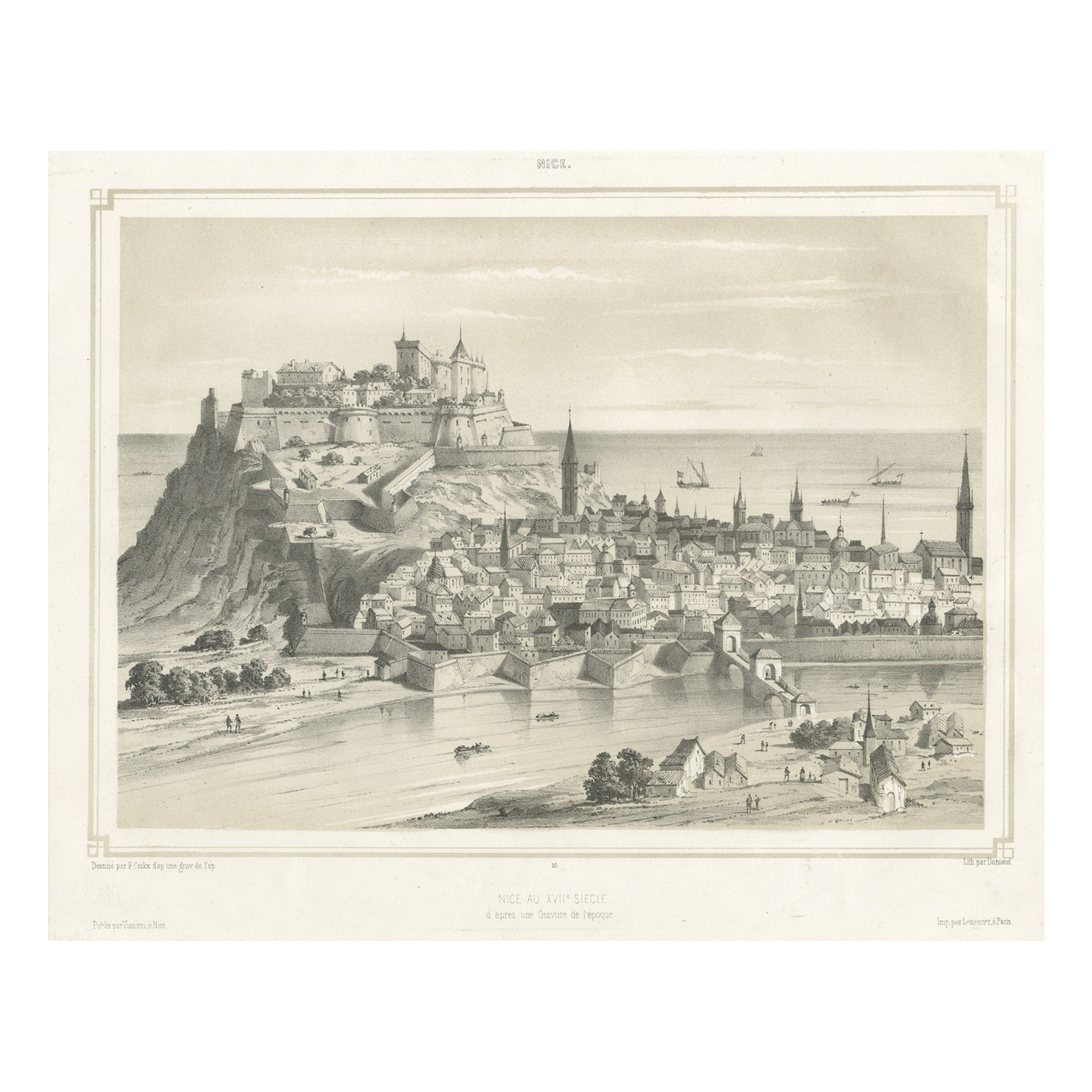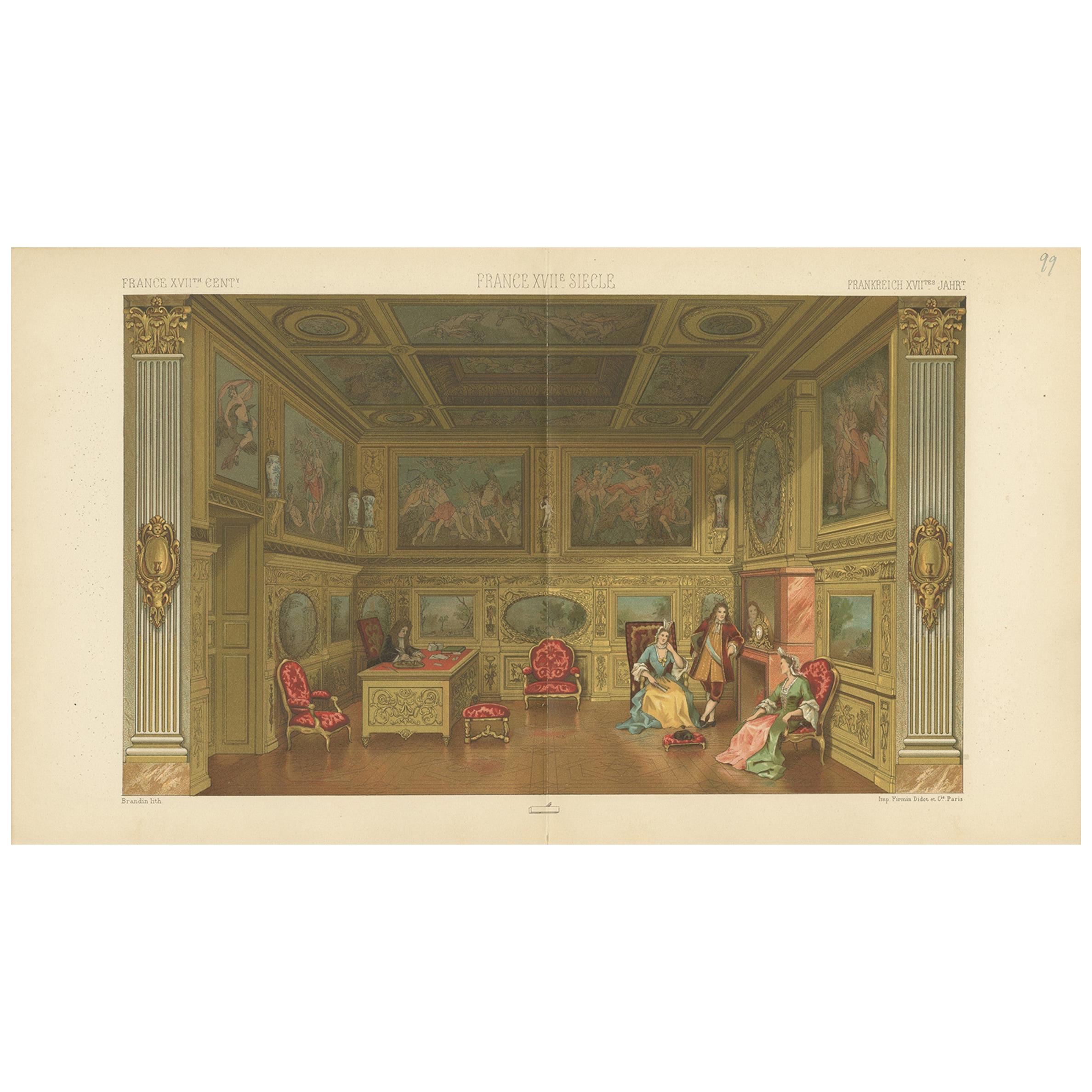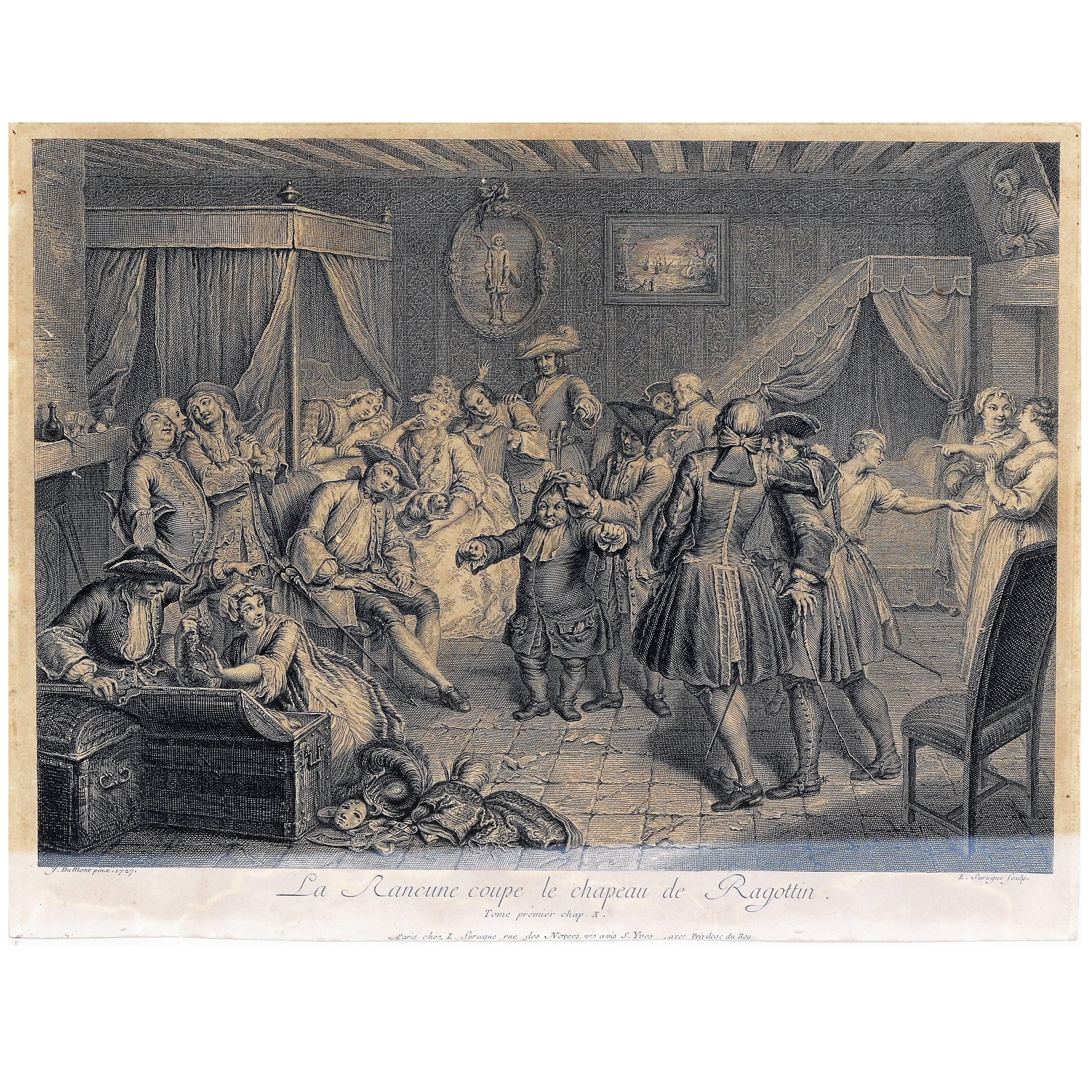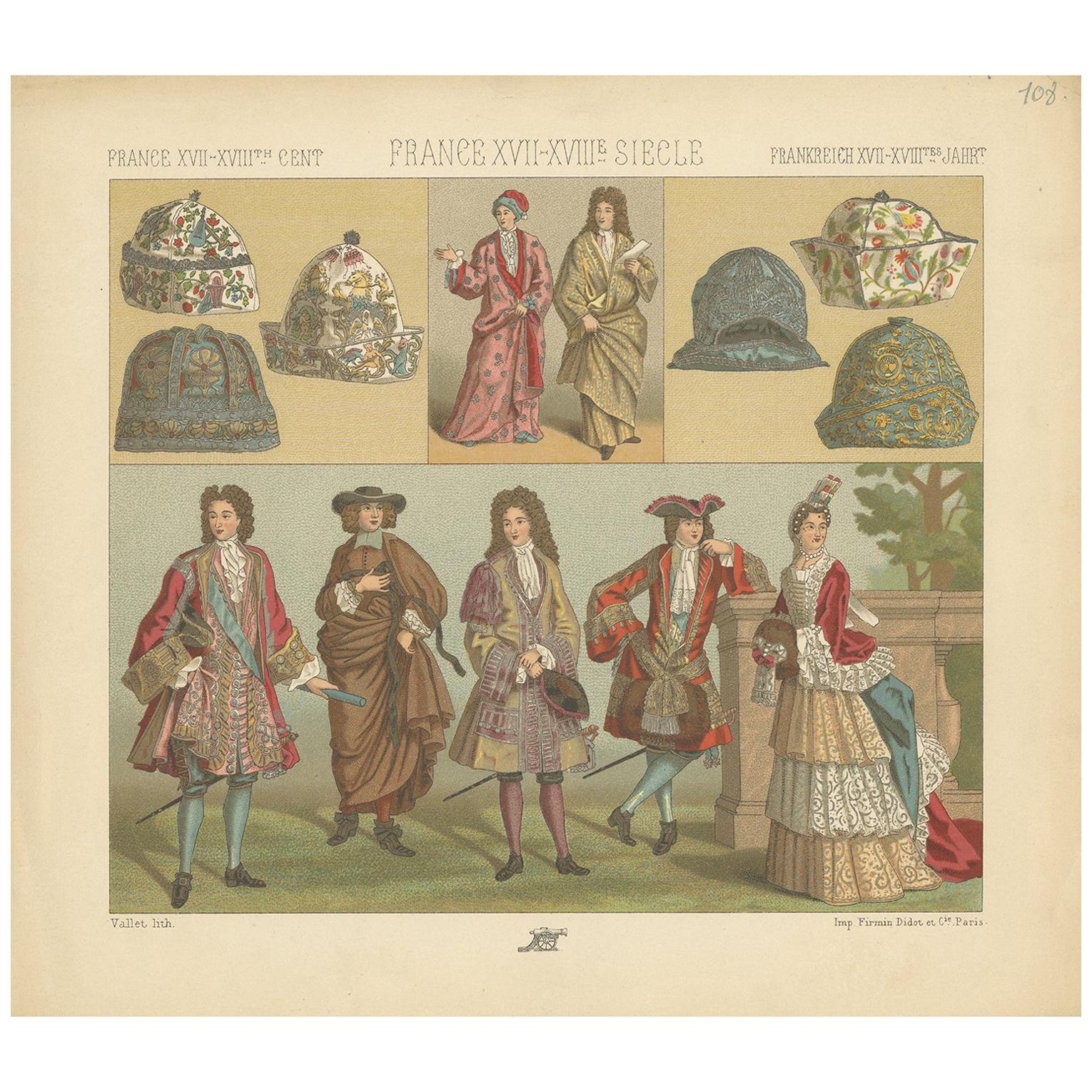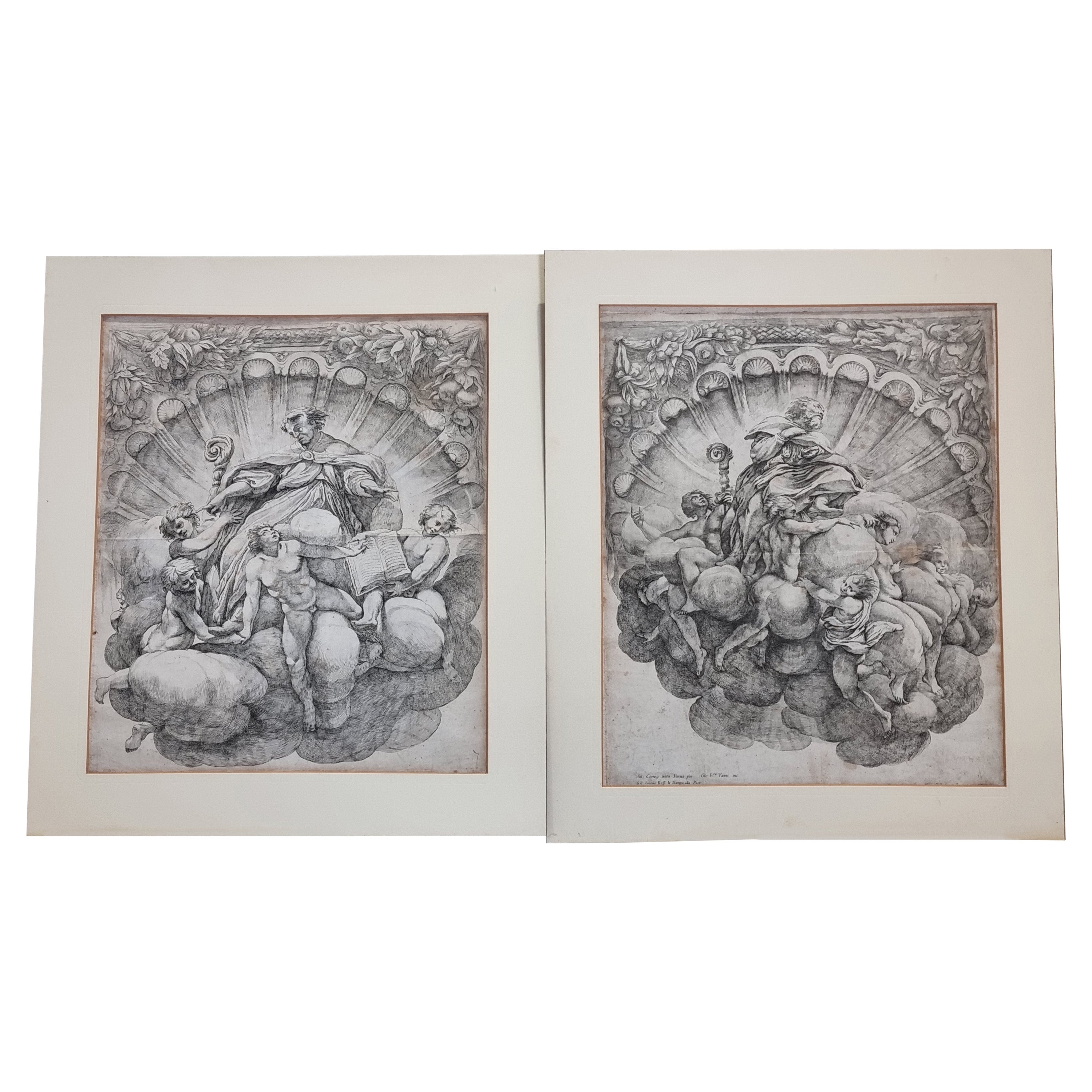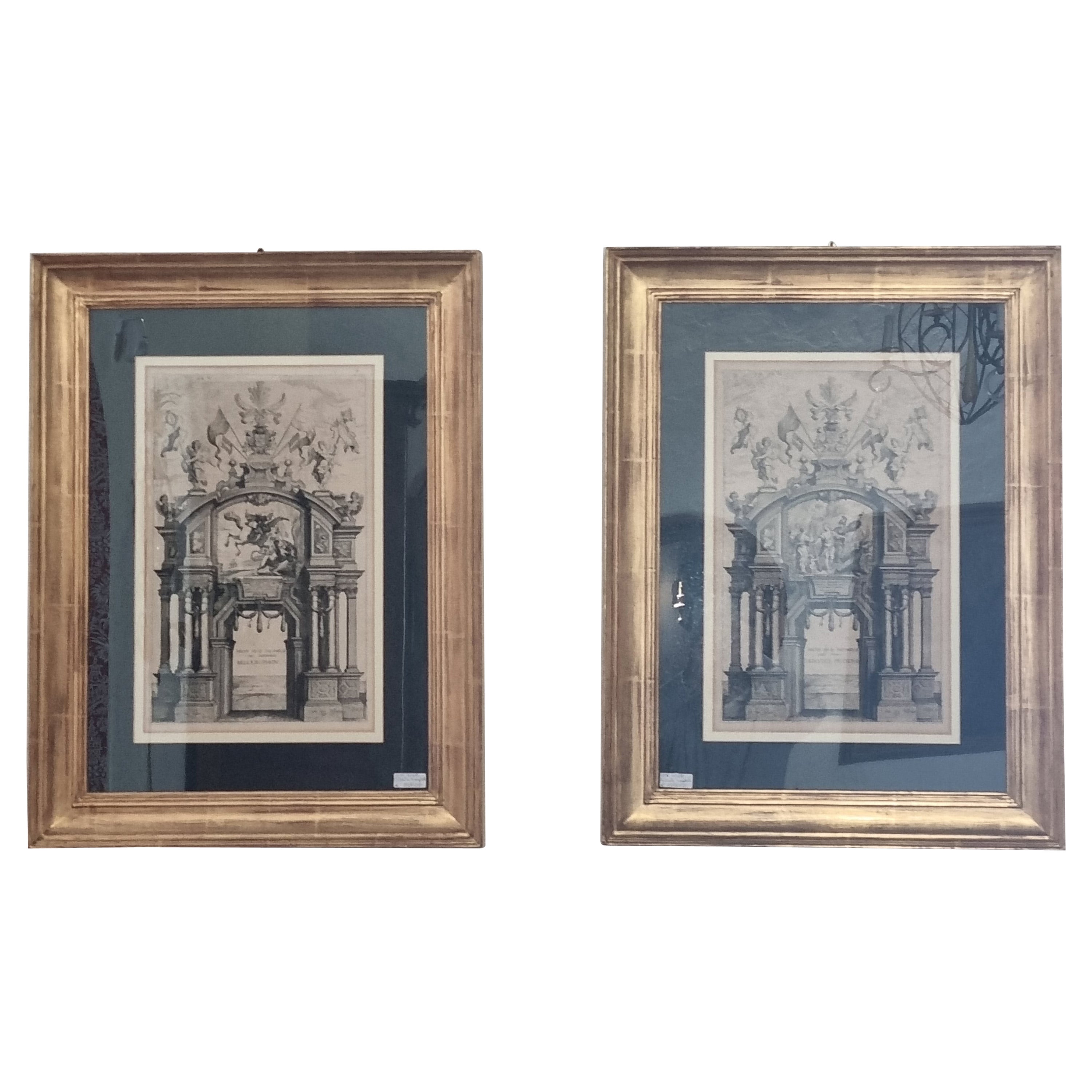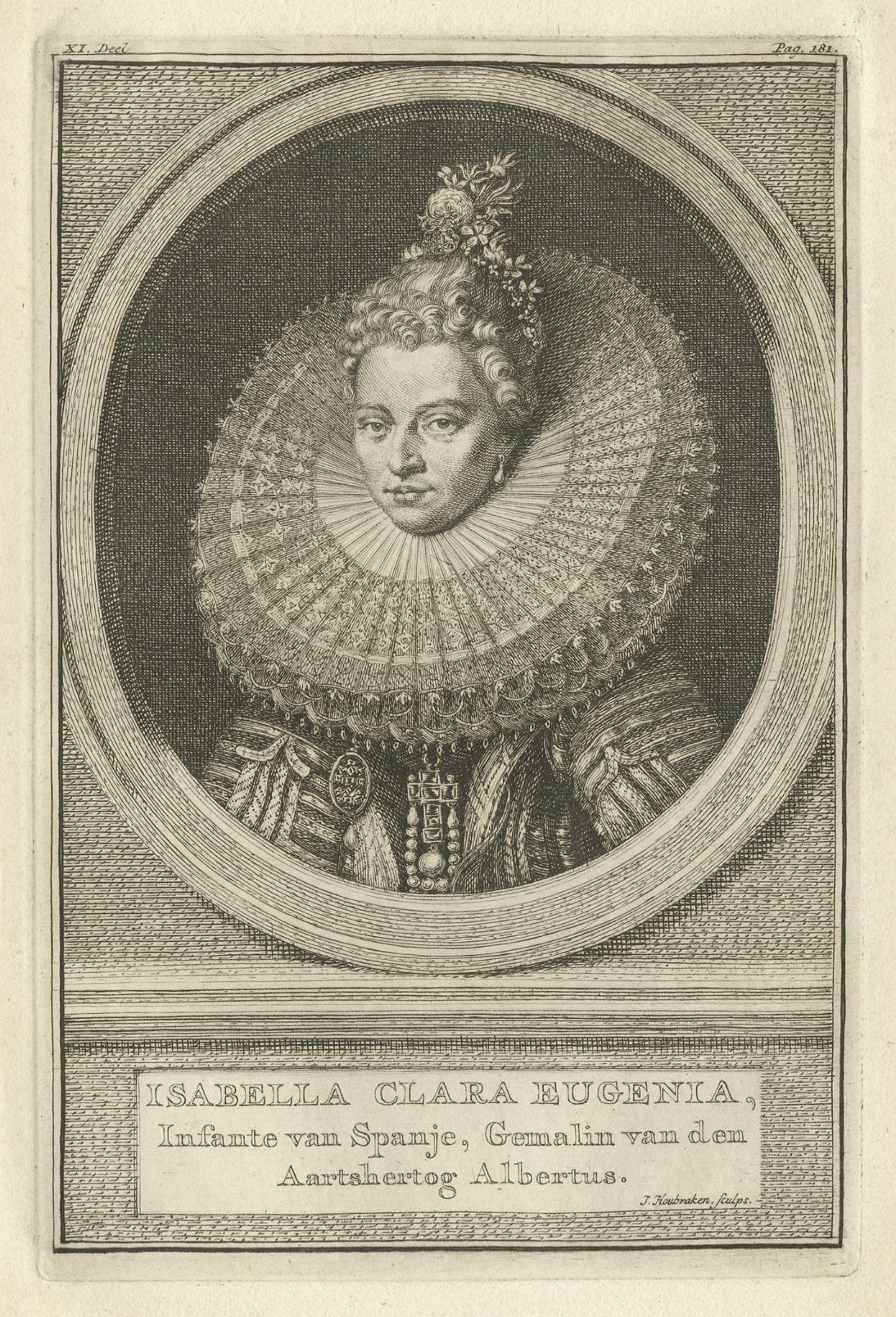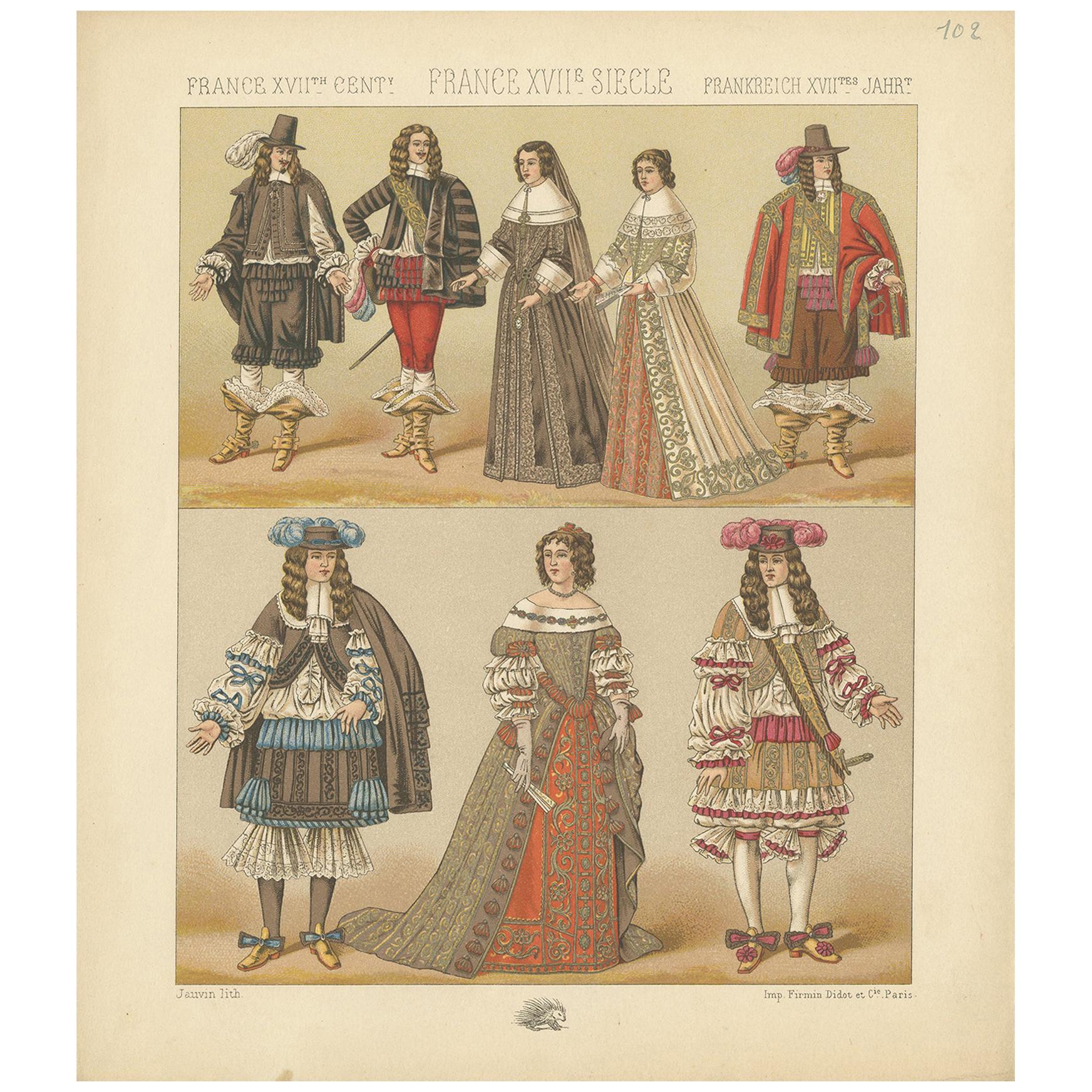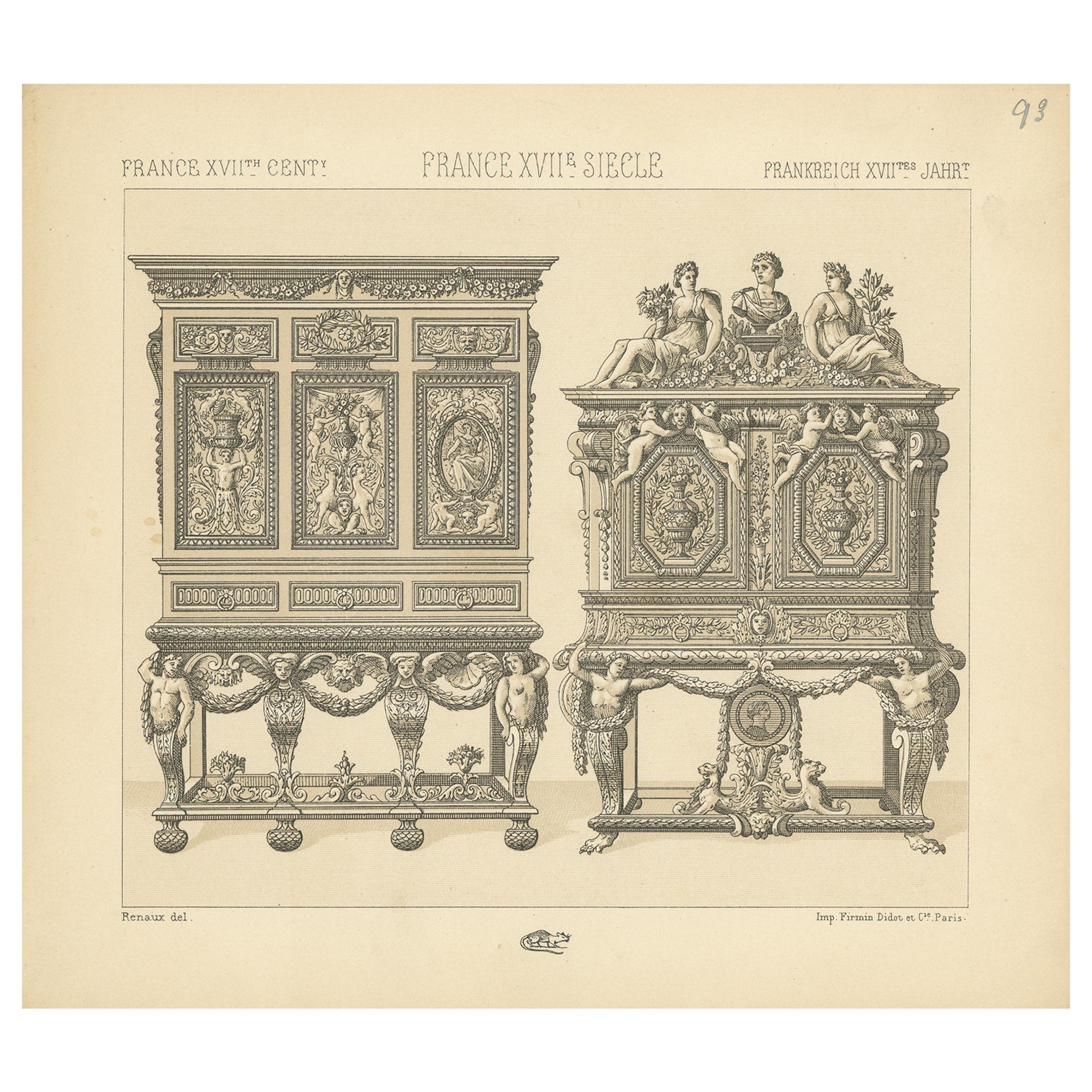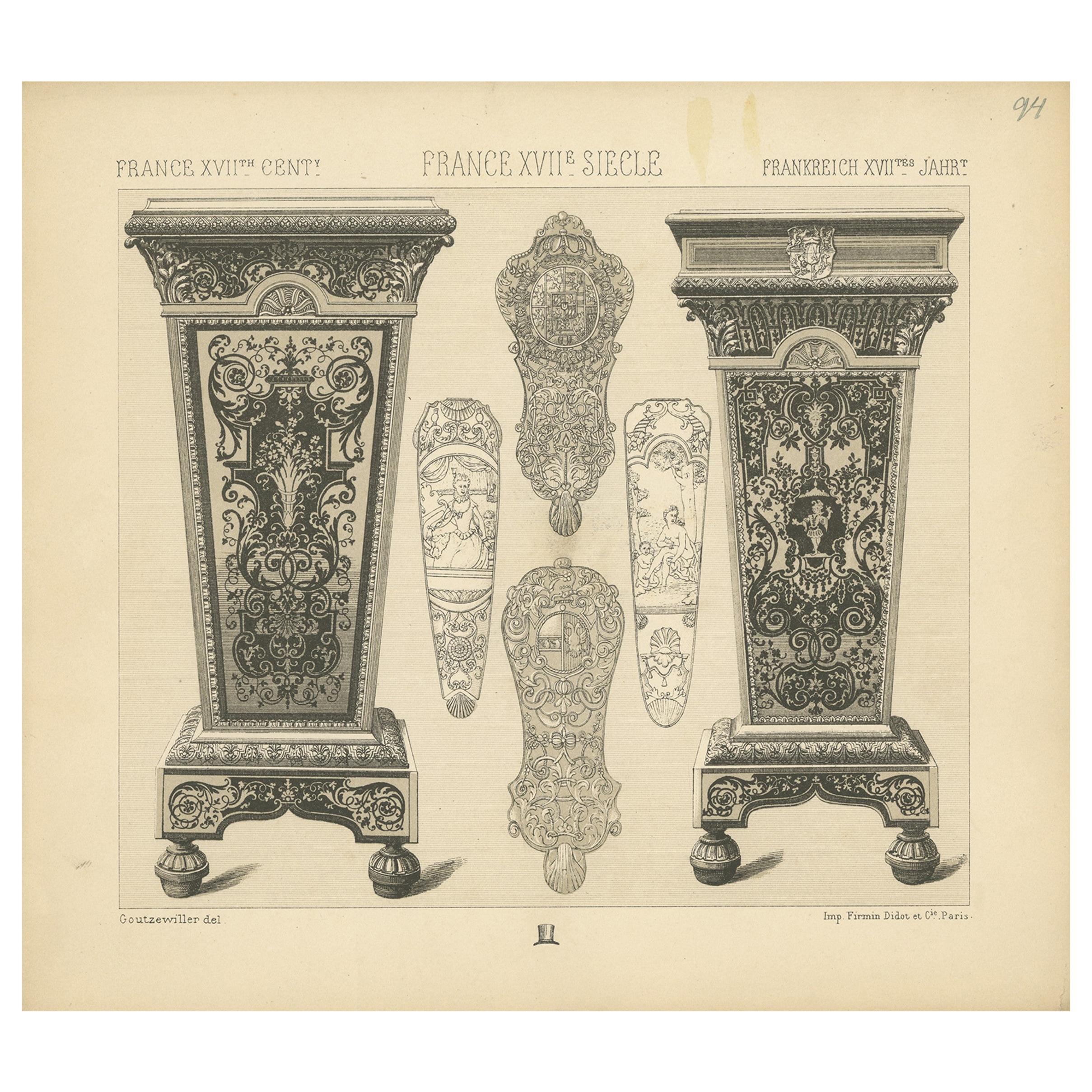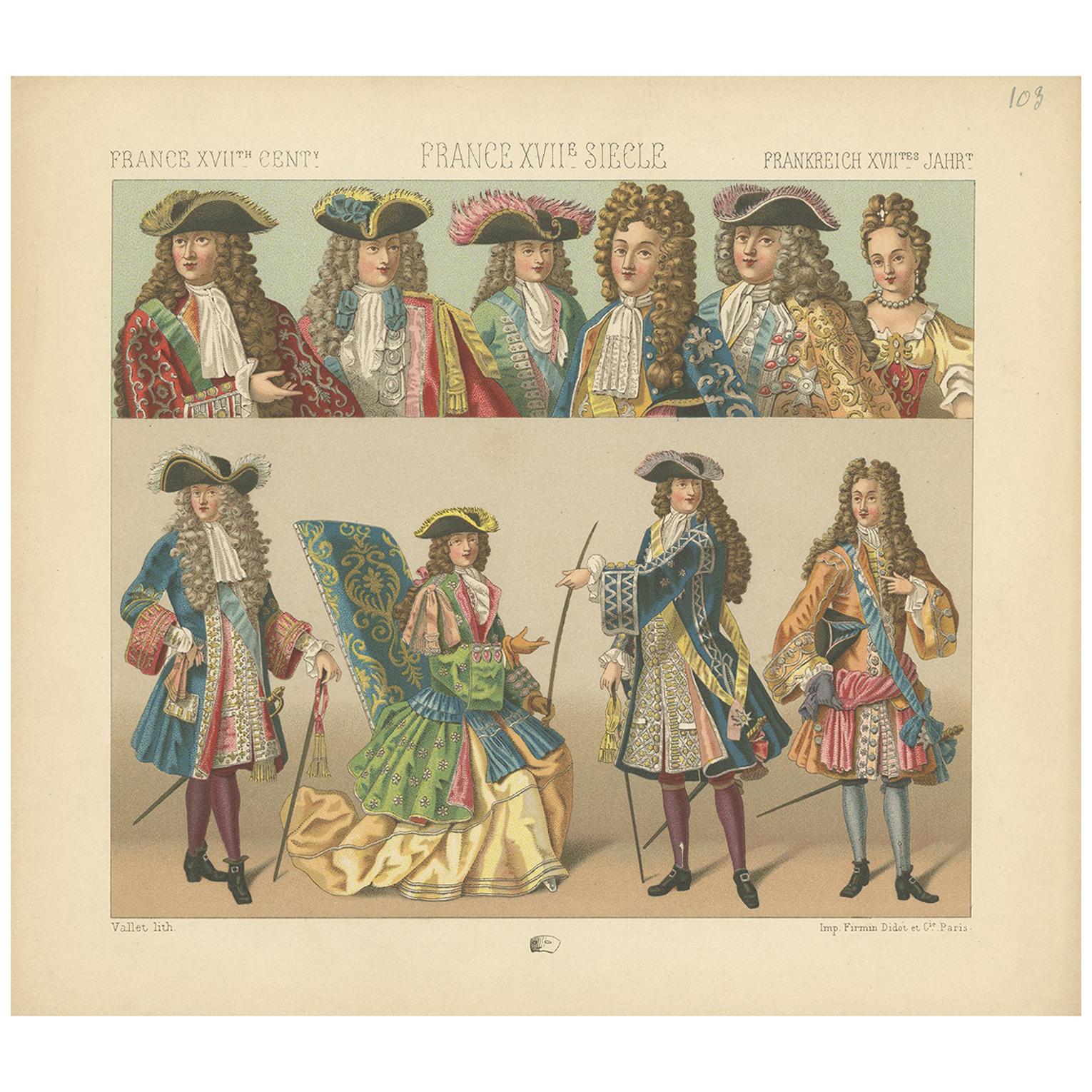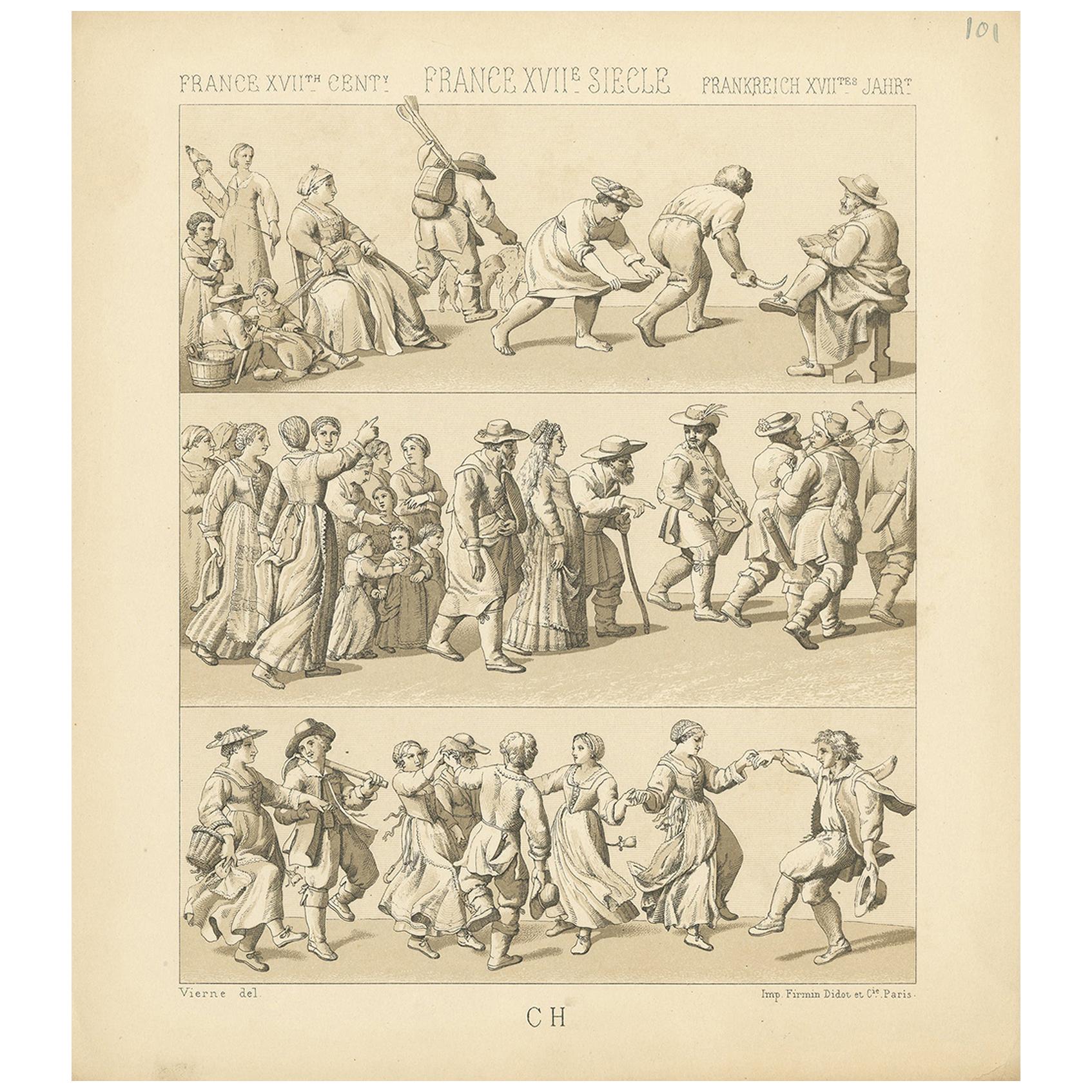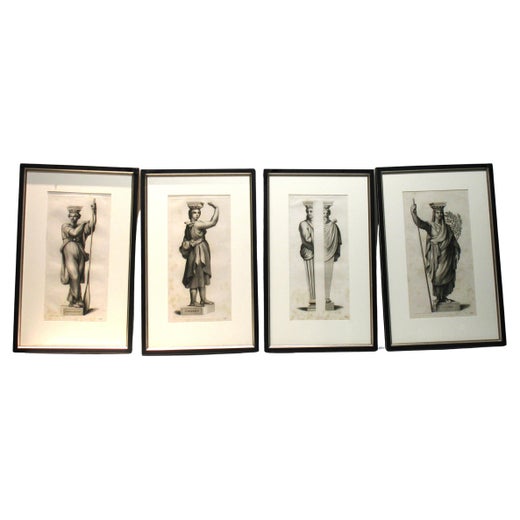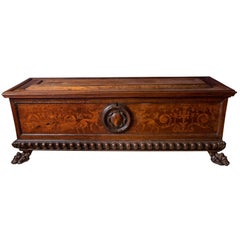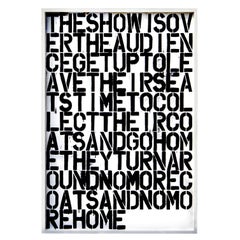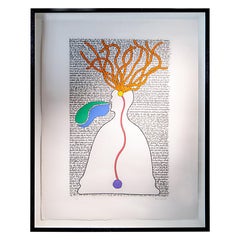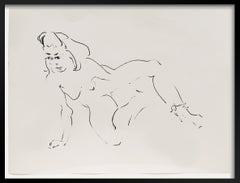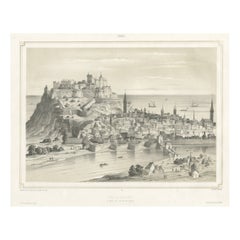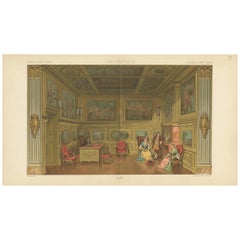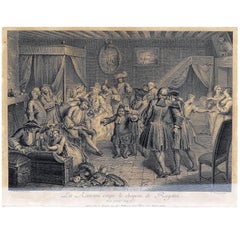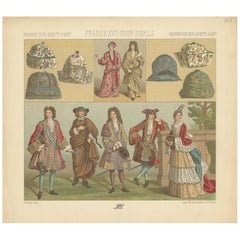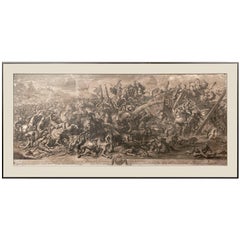
Rare Baroque Engraving 'Battle of the Milvian Bridge, ' France, 17th century
View Similar Items
Want more images or videos?
Request additional images or videos from the seller
1 of 5
Rare Baroque Engraving 'Battle of the Milvian Bridge, ' France, 17th century
$7,527.09List Price
About the Item
- Creator:Gérard Audran (Artist)
- Dimensions:Height: 35.04 in (89 cm)Width: 74.81 in (190 cm)Depth: 0.79 in (2 cm)
- Style:Baroque (Of the Period)
- Materials and Techniques:Paper,Engraved
- Place of Origin:
- Period:
- Date of Manufacture:1666
- Condition:Wear consistent with age and use.
- Seller Location:London, GB
- Reference Number:1stDibs: LU227635780073
Gérard Audran
Gérard Audran was an artist and engraver who took inspiration from the Italian old masters, such as Guercino, Domenichino and Carracci.
About the Seller
5.0
Vetted Professional Seller
Every seller passes strict standards for authenticity and reliability
Established in 2009
1stDibs seller since 2016
89 sales on 1stDibs
Typical response time: 5 hours
Authenticity Guarantee
In the unlikely event there’s an issue with an item’s authenticity, contact us within 1 year for a full refund. DetailsMoney-Back Guarantee
If your item is not as described, is damaged in transit, or does not arrive, contact us within 7 days for a full refund. Details24-Hour Cancellation
You have a 24-hour grace period in which to reconsider your purchase, with no questions asked.Vetted Professional Sellers
Our world-class sellers must adhere to strict standards for service and quality, maintaining the integrity of our listings.Price-Match Guarantee
If you find that a seller listed the same item for a lower price elsewhere, we’ll match it.Trusted Global Delivery
Our best-in-class carrier network provides specialized shipping options worldwide, including custom delivery.More From This Seller
View AllPalazzo Sacchetti Walnut Cassone Inlaid Engraved Fruitwood Marquetry, 17th C
Located in London, GB
A stunning, noble and important early piece - sourced on the art market some time ago with a provenance of the famous Palazzo Sacchetti, Rome. With a rectangular top above a roundel ...
Category
Antique 17th Century Italian Baroque Commodes and Chests of Drawers
Materials
Walnut, Fruitwood
Untitled, the Show Is over / Christopher Wool & Felix Gonzalez-Torres, 1993
By Christopher Wool
Located in London, GB
United Kingdom - Offset Lithograph on Paper, from the original show 1993
Christopher Wool’s paintings and prints explore the confluence of image, text, and pattern. They often feature enigmatic, confrontational found phrases or illegible scribbles, which are either stencilled or plastered in black across flat white fields. The artist occasionally covers the compositions with spray-paint marks and screen-printed elements (some taken from his previous works), erasing and relayering as he goes. His process—which focuses on the possibilities of reproduction, appropriation, and accretion—is as important as the results themselves. Wool studied at Sarah Lawrence College and the New York Studio School. New York’s vibrant 1970s downtown No Wave and punk scenes became major influences, and Wool reached his mature style in the mid-1980s. Wool has exhibited in New York, Los Angeles, Chicago, London, Paris, Tokyo, Berlin, and beyond, and his work belongs in the collections of the Museum of Modern Art, the Centre Pompidou, and the Tate. His work has achieved eight figures on the secondary market.
Drawing from Minimalism and Conceptualism, Felix Gonzalez...
Category
1990s British Post-Modern Prints
Materials
Glass, Hardwood, Paper
Flowing in the Right Direction by Peter Schmidt, 1971, Europaeische Graphik
Located in London, GB
Flowing in the Right Direction from Europaeische Graphik VII, 1971; lithograph printed in colours, signed and numbered 2/65 in pencil, printed by the Curwen Studio, published by Wolfgang Ketter, with their blindstamp. Note: For a similar example see Tate PO6459
Presented in a new hardwood ebonised box frame.
About the artist:
Peter Schmidt...
Category
Vintage 1970s British Modern Contemporary Art
Materials
Paper
Set of 2 - Framed Female Fluid Nudes by Barry Flanagan RA OBE, signed - c1990
By Barry Flanagan
Located in London, GB
Lithographs on arches, with initials, inscribed AP and numbered in pencil.
Published by Waddington Graphics, London.
In new high quality black ash box frames.
Category
Late 20th Century British Modern Prints
Materials
Paper
Bronze Head of Buddha 18th Century, Thailand
Located in London, GB
Bronze cast with delicate serene features, very refined detailing throughout. Featuring bow-shaped mouth and downcast eyes, flanked by pendulous pierced ...
Category
Antique 18th Century Thai Tribal Busts
Materials
Bronze
Original French Louis XIV walnut throne wing armchair, 18th century
Located in London, GB
Rich patina and warm walnut tones, with wingback headrest and beautifully scrolled arms, the lower frame comprises an H-form cross stretcher with intricate turned legs. Newly upholst...
Category
Antique 18th Century French Louis XIV Armchairs
Materials
Walnut
You May Also Like
Old City View of the City of Nice, France, in the 17th Century, 1855
Located in Langweer, NL
Antique print titled 'Nice au XVIIe Siecle d'apres une Gravure de l'Epoque'. Original antique print of the city of Nice, France. This print originates from the series 'Nice et ses en...
Category
Antique 19th Century Prints
Materials
Paper
$225 Sale Price
20% Off
Antique Print of French 17th Century Office, 'circa 1880'
Located in Langweer, NL
Antique print titled 'France XVIIth Cent - France XVIIe Siegle - Frankreich XVIIth'. Chromolithograph of French 17th century office. This print originates from 'Le Costume Historique...
Category
Antique Late 19th Century Prints
Materials
Paper
Rare Burlesque Engraving print Rancor Cuts the Hat of Ragotin, 18th Century
Located in Beuzevillette, FR
Engraving by Louis de Surgis de Surugue after a painting by Jacques Dumont dit Le Romain.
It is part of a series of 16 engravings illustrating "Le Rom...
Category
Antique Early 18th Century French Prints
Materials
Paper
Pl. 108 Antique Print of French 17th-18th Century Costumes by Racinet
Located in Langweer, NL
Antique print titled 'France XVII, XVIIIth Cent - France XVII, XVIIIe Siecle - Frankreich XVII, XVIIItes Jahr'. Chromolithograph of French 17th-18th century costumes...
Category
Antique Late 19th Century Prints
Materials
Paper
$93 Sale Price
20% Off
17th Century Pair of Burin Prints by Giovanni Battista Vanni, Italy, 1642
By Antonio da Correggio, Giovanni Battista Vanni
Located in Cagliari, IT
A beautiful pair of burin engravings depicting "Saint Bernardo degli Uberti" and "Saint Hilary of Poitiers" two of the patron saints of the city included in the base of the cupola ( dome ) of Parma cathedral frescoed by Antonio Allegri known as Correggio (Correggio, August 1489-Correggio 5 March 1534) between 1524 and 1530. Admirable work by the great master in which his genius as a forerunner of the Baroque is fully seen.
In 1642 Giovanni Battista Vanni etched a series of fifteen plates from Correggio's frescoes.
Giovanni Battista Vanni was born in Pisa around 1599; he studied successively under Jacopo da Empoli, Aurelio Lomi, and Matteo Rosselli, and then became a disciple of Cristofano Allori. He is better known as an engraver than as a painter. From 1624 to 1632, he lived in Rome, then returning to Florence after visiting Venice.
In addition to the series of prints...
Category
Antique 17th Century Italian Baroque Prints
Materials
Paper
17th Century Pair of Etchings by Theodoor Van Thunlden from Rubens, Antwerp 1642
By Theodoor van Thulden, Peter Paul Rubens
Located in Cagliari, IT
"Arch dedicated to Hercules" and "Arch dedicated to Bellerophon"
Splendid and very rare etchings belonging to a suite of subjects executed for the preparations of the "Celebrations for the entry into Antwerp of the Cardinal-Infante Ferdinando of Habsburg-Spain on 17 April 1635".
The sketches for the decorations were all drawn by Sir Peter Paul Rubens and the execution of the etchings was entrusted to Van Thulden.
Bottom left: P.P. Rubens. Bottom right: G. Gervatius (who was commissioned to bring together the illustrations of the arches in a special volume) and Van Thulden.
Laid paper with watermark - copper imprint - margins - excellent condition.
At the end of 1634 Peter Paul Rubens (1577-1640) was invited to make a series of drawings to decorate the city of Antwerp on the occasion of the solemn entry of the infant cardinal Ferdinand of Habsburg (1609-1641) who, after his death of Archduchess Isabella Clara Eugenia (1633), Spanish governor of the southern Netherlands, had been elected as his successor. Generally in these circumstances, the itinerary was articulated through a series of stations and the city - in its main urban hubs - was adorned with decorations and ephemeral apparatuses which, without solution of continuity, covered the facades of the palaces, churches and convents facing the parade axis of the celebratory itinerary, testifying to the participatory role of the various public and private institutions that took part in the feast1. As had happened for the entrances of Charles V in 1520, of Philip II in 1549 and of the archdukes Albert and Isabella in 1599, also in this case, on 17 April 1635, the most important streets and squares of Antwerp were enriched with arrangements: temporary altars, four scenarios, a portico and large triumphal arches built in wood, over twenty meters height, decorated with paintings, sculptures and allegorical scenes. The references to the ancient alluded in this case to the greatness of the Habsburgs and to the merits of Ferdinand for the victory obtained over the Protestant armies of Sweden and their German allies. The choice to use the triumphal arch has its roots in the "city of the popes" and must be read as a connection with the triumphal and modern arches, with Rome and with the "possession" ceremony, placing the emphasis on its centuries-old use . In the elaboration of the drawings and sketches Rubens proved to be a true connoisseur of architecture, but what is most surprising about the artist is the casual use of architectural language and fidelity to sixteenth-century Roman models. In order for the memory of these works to be perpetuated over time, some artists were commissioned to etch the ephemeral apparatuses and, under the guidance of the painter Theodor van Thulden...
Category
Antique 17th Century Belgian Baroque Prints
Materials
Paper
$2,813 Sale Price
20% Off
